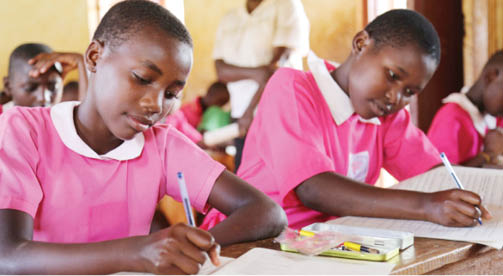Menstrual hygiene: Bringing succour to girls, women
The Menstrual Hygiene Day (MH Day) marked every May 28 raises awareness and combats taboos associated with menstruation with the goal of enabling women and girls to achieve their full potentials. Menstruation is a monthly reality for women and more than half of them are currently of reproductive age, yet globally, many women lack access […]

The Menstrual Hygiene Day (MH Day) marked every May 28 raises awareness and combats taboos associated with menstruation with the goal of enabling women and girls to achieve their full potentials.
Menstruation is a monthly reality for women and more than half of them are currently of reproductive age, yet globally, many women lack access to menstrual hygiene products or sanitation facilities either due to limited availability or excessive costs.
The theme of the 2019 MH Day: “It’s Time for Action”, does not only emphasise the urgency of this health issue, but also highlights the transformative power of improved menstrual hygiene to empower women and girls and unlock their economic and educational opportunities.
Research revealed that globally, 2.3 billion people lack basic sanitation services, and that in the developing countries, the situation is even more challenging.
Nigeria as a developing country is said to be struggling to provide adequate sanitation services that will benefit school girls, which has significantly contributed to girls missing out of school. Education is a right and girls have the right to attend school without interference despite menstruation.
In a statement to mark the 2019 MH Day, the Mercy Corps Nigeria said the inability of in-school girls to manage menstruation properly often results in discomfort, poor self-esteem and absenteeism, thereby making it difficult for them to maximally participate in academics and complete a cycle of learning.
“Menstruation is a normal biological process and should not negatively affect the social wellbeing of school girls once they hit puberty,” the statement read in part.
Mercy Corps Nigeria, as a complementary intervention to the Department for International Development (DFID)-funded “Educating Nigerian Girls In New Enterprises II (ENGINE II)” programme, in partnership with Procter and Gamble’s “Always Keeping Girls In School (AKGIS)” project in tackling the challenge faced by women and girls during their menstrual period, is reaching over 2,000 girls and secondary school teachers in the Federal Capital Territory (FCT).
ENGINE II provides training to adolescent girls, boys and teachers on Menstrual Health Management (MHM) in schools, psycho-social support, counselling and life skills.
Over 73,440 sanitary pads have been provided for emergency for adolescent girls in 29 secondary schools in the FCT, with teachers and principals trained to build MHM into their school systems, increase awareness on the proper management of menstruation in schools, address myths and create a conducive environment for girls to stay in school during their periods.
The FCT Team Leader of ENGINE II, Anuoluwapo Fashola, said, “AKGIS has been a very impactful project. It has a unique model, targeting menstrual hygiene management for girls and engaging key stakeholders to create a supportive environment for girls to thrive and complete their education. Girls now have access to sanitary pads in school in case their period starts while at school.
“Sequel to the achievements made, the project continues its advocacy for improved school Water, Sanitation and Hygiene (WASH) facilities. Some schools in the FCT do not have basic sanitary facilities, while others that have are not functional.”
